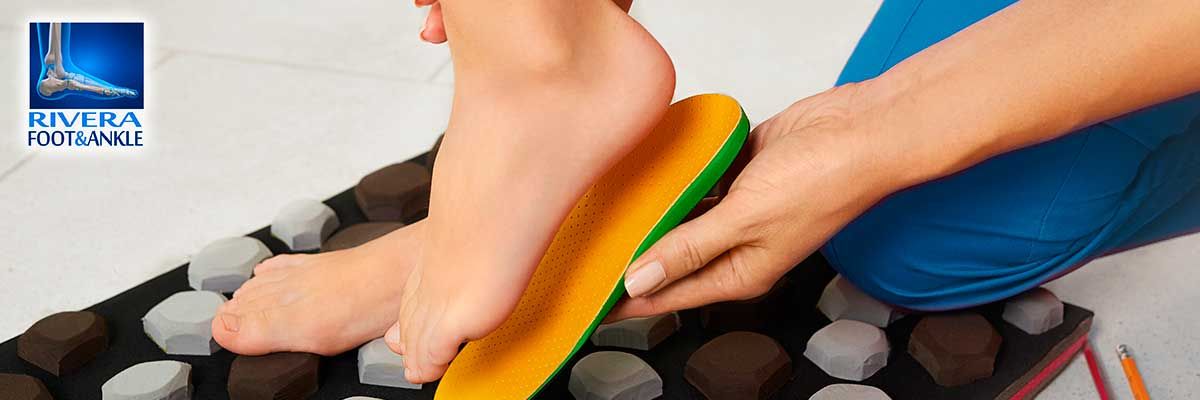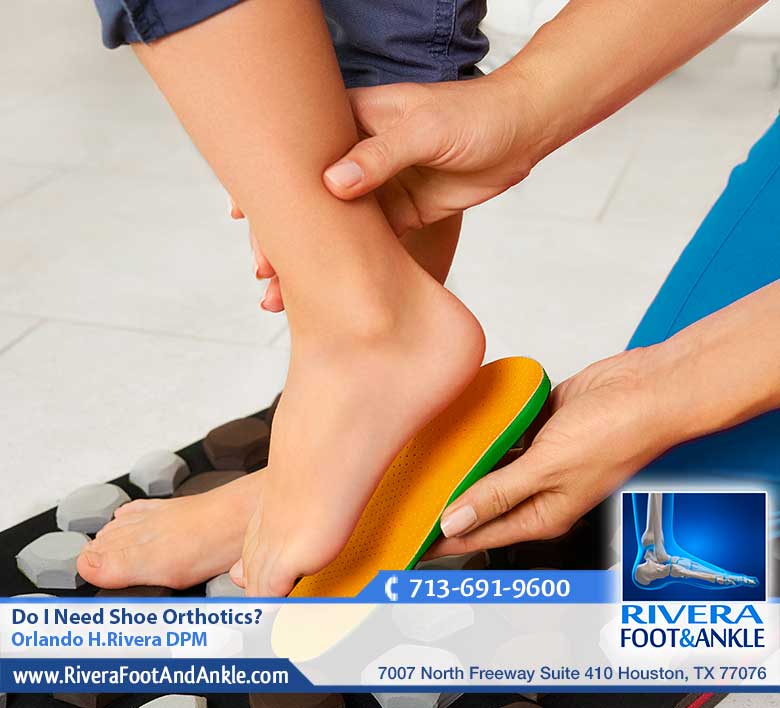
Orlando H.Rivera DPM
Do I Need Shoe Orthotics?
Are your feet aching again? Are you wondering if a simple shoe insert might help? It might. But depending on what the problem is, you could need an "orthotic" instead.
Inserts that you can buy in stores without a prescription can provide cushioning and support. They may be made of materials like gel, plastic, or foam. Inserts fit into your shoes. But they're not custom-made for your feet. They can provide arch support or extra cushioning on the heel, around the toes, or for your entire foot. Inserts might make your shoes more comfortable but aren't designed to correct foot problems.
Orthotics are different. They are prescription medical devices that you wear inside your shoes to correct biomechanical foot issues such as problems with how you walk, stand, or run. They can also help with foot pain caused by medical conditions such as diabetes, plantar fasciitis, bursitis, and arthritis. Orthotics might even help you avoid surgery to fix flat feet.
Still, you might not need the prescription medical devices. Sometimes, an over-the-counter shoe insert will work just fine. You'll want to ask a podiatrist, a doctor specializing in foot care, for her recommendation.
What Your Podiatrist Will Check
During an appointment, your podiatrist will take 3D images of each foot and do a thorough examination. That might include watching you walk and noting how your feet, ankles, legs, and hips move.
If you need orthotics, your podiatrist will make a precise mold of your feet. This is important to get the right fit. Once the mold is ready, a professional will turn it into rigid or soft orthotics.
Types of Orthotics
- Rigid orthotics, or "functional orthotics," are made from materials like plastic or carbon fiber. They're best for walking shoes or dress shoes with closed toes and low heels. This kind of orthotic is designed to ease foot aches and strains as well as pain in the legs, thighs, and lower back that you might feel if your foot doesn't work like it should.
- Soft orthotics, or "accommodative orthotics," are made from soft compression materials. They provide cushioning to take the pressure off uncomfortable or sore spots from conditions such as plantar fasciitis or diabetic foot ulcers. Because of their bulk, you might need to wear soft orthotics with prescription footwear.
You can also get special orthotics designed for sporting equipment such as ski boots and ice skates.
RIVERA FOOT & ANKLE: At Orlando H.Rivera DPM, our priority is to deliver quality care to informed patients in a comfortable and convenient setting. When you have problems with your feet, you need to turn to a podiatrist who listens and responds… an experienced doctor who knows the field and can effectively diagnose and treat your needs… a friendly physician who counsels you on the best ways to maintain and improve your health. Our physician(s) meet all these criteria. Plus, you benefit from a dedicated team of trained professionals who give you the individualized attention you deserve.

Orlando H.Rivera DPM
Foot and Ankle, Dr. Orlando Rivera, Advanced Foot & Ankle Specialist, Foot and Ankle Podiatry, Houston Foot & Ankle Surgical, Treatment of Foot and Ankle, Foot & ankle specialists, Podiatrist in houston, podiatrist in houston, Orlando H.Rivera DPM, Houston Foot Doctor, Foot and Ankle Surgeon Houston, Ankle and Foot Specialist Houston, Podiatrist Houston, Foot Pain Houston.



